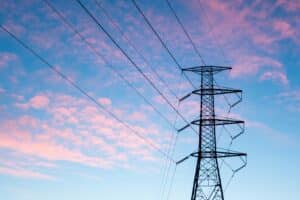Let’s talk about the weather. I know, I know … Usually the weather is considered a fairly mundane topic, maybe not worth writing a column about in the area’s leading English-language newspaper. You know, “Nice weather we’re having” or “Hot enough for ya?” Simple chit-chat.
On the other hand, the weather is one of the main reasons many of us have chosen to be residents of the Algarve region of Portugal. Something about “300 days a year of sunshine” that brightens our perspective on life and improves our chances of successful tee times.
It’s usually so clear and warm that we’ve gotten spoiled by routine morning coffee out on the terrace, long walks on the beach in the winter when dogs are allowed and forgetting where we left our umbrellas.
Not this year. Less than 100 days into Trump’s second term, 2025 is going to be remembered in these parts as starting out with much more rain than we’re accustomed to – 20-year records even.
Of course, in good ol’Pat’s case, I can’t remember why I came into the kitchen, but it does seem as if the precipitation has become more prevalent than in the past. Whether the nice lady at the corner store, or the nice lady at the post office or the nice lady at the café, who hasn’t put tables outside for weeks, they all agree that it’s rained much more than usual this year so far.
On average, December is by far the rainiest month with 12 wet days coming in at a grand total of about 117 millimeters or 4.6 inches of rain. (This is the last time I do the math for you, even though, to be absolutely honest, inches make much more sense to me.)
The next rainiest is January with nine days adding up to about 84 mm. February and March aren’t even in the top five for precipitation with February usually coming in at eighth place with around five days with a rain gauge showing no more than 25 mm.
This year, however, February and March are at almost double their usual puddle depth. The shortest month of the year registered 10 days with close to 65 mm and March is going for a record at nearly 12 days of precip and a soaking of almost 80 mm.
So, we’re not exaggerating or being big babies. We’re simply not getting to go outside and play as much as we used to, not by a waterlogged long shot.
That’s why I don’t remember ever having to empty the potted plants every other day, because I didn’t.
Lately, it’s normal to meet the dog at the door with a towel. We call Fluffy “Muddy Paws” these days.
I’ve relied on the Portuguese Institute of the Sea and Atmosphere (IPMA) for most of the data. I realize that the acronym doesn’t match the words and that some stats may vary due to location.
When I do get out to squeeze in nine holes of golf before the next thunderstorm, my drives go splat instead of rolling and rolling on a usually dried-out, parking lot-like fairway. Everything, and I mean everything, is much greener than I’ve ever noticed before with plenty of moss growing on the walls.
Water has seeped under the tarp on my firewood pile, and I finally need new wiper blades for the old sedan. The showers aren’t as scattered as they used to be. We’ve found and lost a couple of umbrellas already and my sunglasses are working their way to the back of the glove compartment.
There is a silver lining hidden within the cloud cover hovering over the windswept Faro moors. As the rain keeps filling the potholes from one overcast day to another, some of the runoff is being collected into most but not all of the reservoirs in the southern part of the country.
According to SNIRH, which somehow stands for the National Water Resources Information System, our river basins and reservoirs have filled enough to greatly reduce the threat of shortages later in the year – like during the four to six months when it doesn’t rain a drop.
About half of the 60 or so reservoirs are at 80% or more (which hasn’t been the case in recent times), but a few are still about half full. I don’t get it either. Apparently, some river basins do a better job than others at retaining spillage, with those in the eastern Algarve doing better than the ones out west. This means that a few more swimming pools can be filled, flowers watered and toilets flushed. You might even be able to take an outdoor shower during the July and August heat waves without feeling like a criminal.
One variable that has not been figured in is, of course, climate change. I certainly hope that the fact that we get as much rain as Manchester, England, is not the new normal. England has had some very hot stretches the past couple of summers, so there is that.
Pat, as well as many experts, expects more extreme weather in the future.




















